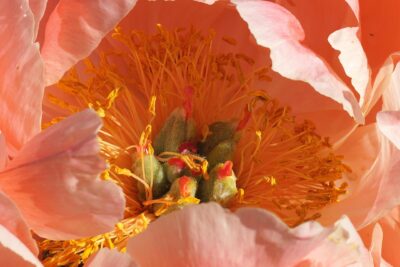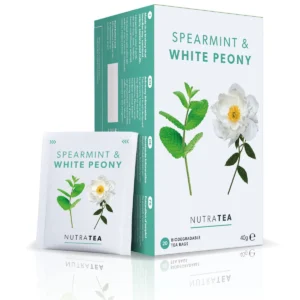White Peony PCOS Tea
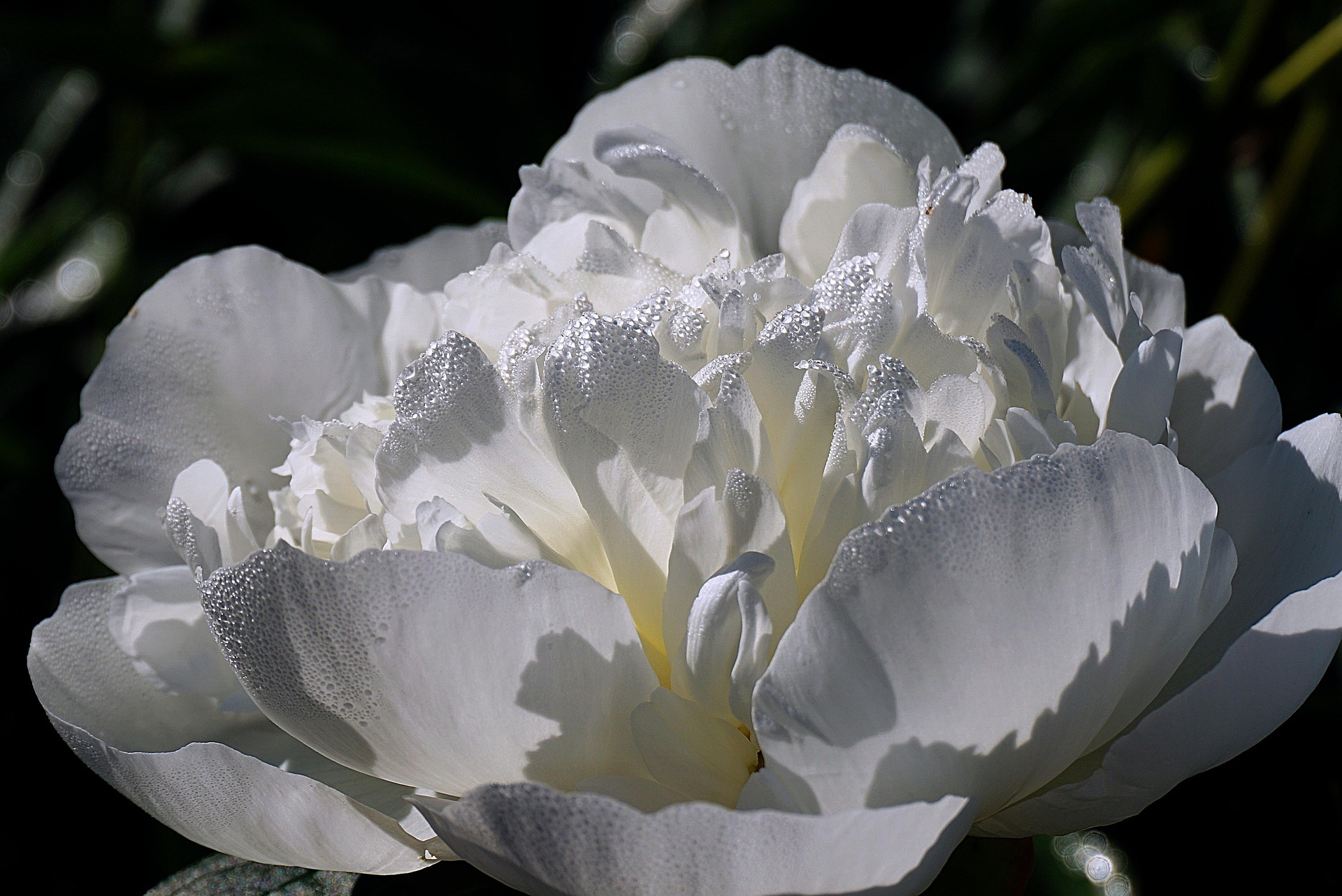
White Peony (Paeonia lactiflora) root is an effective herbal remedy for managing Polycystic Ovarian Syndrome (PCOS) and Premenstrual Syndrome (PMS). Traditional Chinese Medicine (TCM) has treated gynecological problems like PCOS and PMS with White Peony root (Bái Sháo) for over 1,500 years, and modern science backs up the herb’s efficacy. NutraTea herbalists crafted the tea blend Spearmint and White Peony to equip women with PCOS and PMS to manage their symptoms naturally.
White Peony root contains:
- Monoterpene glycosides, particularly paeoniflorin, albiflorin, and oxypaeoniflorin
- Gallotannins
- Triterpenoids
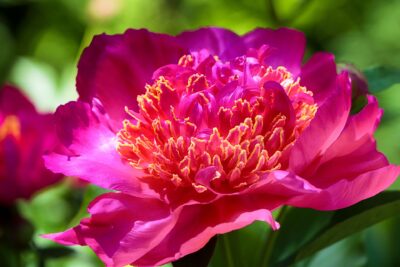
What is PCOS?
PCOS is a common and ancient hormonal disorder affecting women of reproductive age. It has a varying constellation of symptoms and no known cause. Women with PCOS usually have one or more of the following: irregular or absent periods, excess androgen levels, and polycystic ovaries. Excess androgen levels often cause excessive hair growth (hirsutism), acne, baldness, and weight gain. Polycystic ovaries are enlarged ovaries with multiple immature follicles that may not release regularly, which can cause ovulation and fertility issues. Often, chronic stress and inflammation come into play. In PCOS cases, the hormone progesterone is suppressed, and both estrogen and and androgens (male hormones) are elevated.
How does White Peony help PCOS?
White Peony root tea, drunk regularly, can help regulate progesterone and estrogen levels. It has anti-androgenic and phytoestrogenic properties, which can help reduce androgen levels. White Peony promotes regular, monthly menstrual cycles and ovulation. These actions reduce the symptoms of PCOS and improve fertility. The herb acts on the hypothalamic-pituitary-ovarian (HPO) axis. Its constituents paeoniflorin and albiflorin modulate hormones. White Peony root is also anti-inflammatory and adaptogenic, reducing inflammation and stress. PCOS can predispose a woman to insulin resistance, metabolic syndrome, and type 2 diabetes. White Peony enhances insulin sensitivity, regulates glucose metabolism, and improves lipid profiles. Women with PCOS often experience gastrointestinal issues like painful abdominal cramps due to impaired digestion. White Peony relaxes smooth muscles and alleviates painful cramping. This is thanks to its influence on acetylcholine in the neuromuscular junctions. Its constituent paeoniflorin improves gut health, promoting healthier digestion.
Spearmint and White Peony tea harnesses White Peony’s sophisticated, normalizing effect on PCOS symptoms.
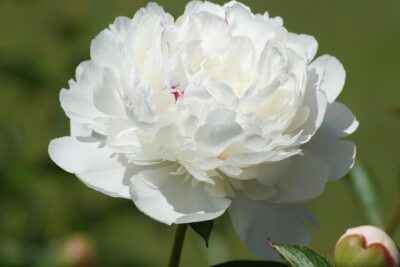
How does White Peony Help PMS?
White Peony increases serotonin levels, combatting the dark moods that often accompany PMS. It does so by inhibiting the serotonin transporter (SERT) and preventing the protein from capturing and breaking down serotonin. Paeoniflorin and other compounds in White Peony can improve blood circulation, preventing blood clots. The herb is also has spasmolytic and analgesic properties. It can decrease PMS symptoms like painful cramps and sore breasts.
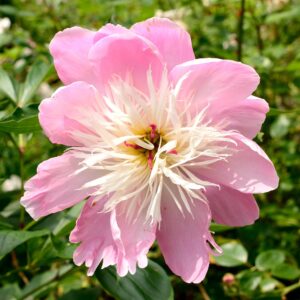
Mythological Physician of the Gods
The three main forms of medicinal peony are tree peony, red peony, and white peony. These differentiations refer to the color of the roots after preparation, not the flower’s color. White peony is made from the roots of the plant without the bark attached, and is the most common. White Peony is considered bitter, sour, and cooling in its energetics. The name Peony derives from Paeos, the mythological physician who cured the injured Greek gods after the Trojan war.
The Peony is famous for its generously large, fragrant blooms that come in a rainbow of shades with yellow or pink centers. The flowers are usually 4-6 inches in diameter and the petals are smooth and delicate. The plant is a herbaceous perennial, reaching 1-3 feet in height. It is native to East Asia and grows in many parts of the world, including China, Mongolia, and Siberia. Peony is the only member of the Paeoniaceae family. About thirty-three peony species exist, but the medicinal varieties are Paeonia lactiflora, Paeonia suffruticosa, Paeonia veitchii, and Paeonia obovata.
